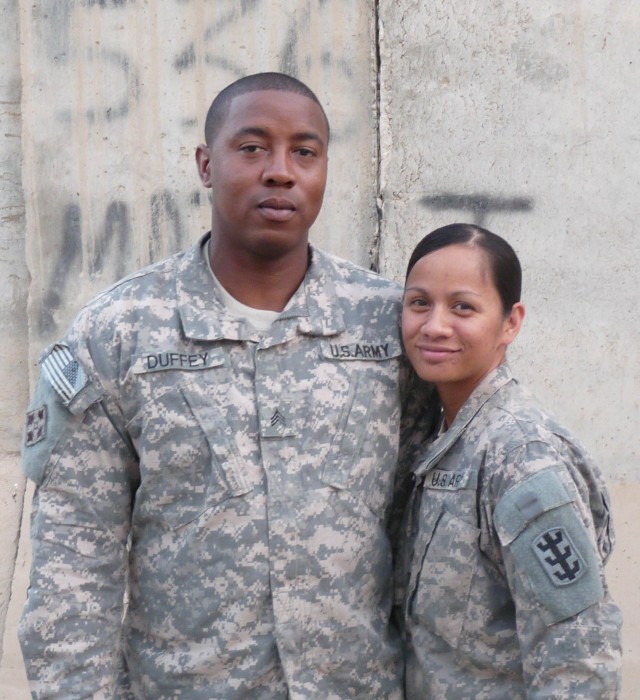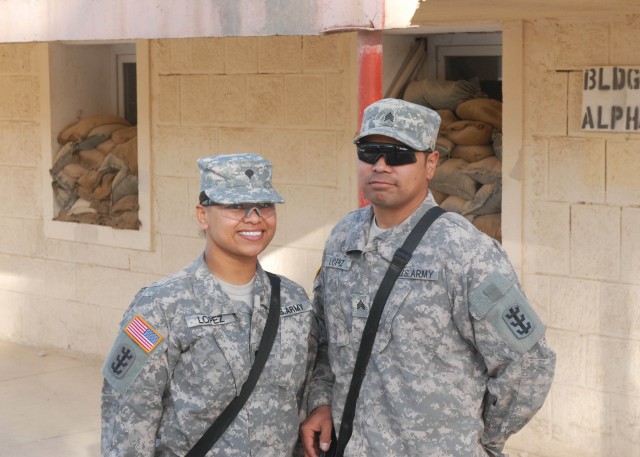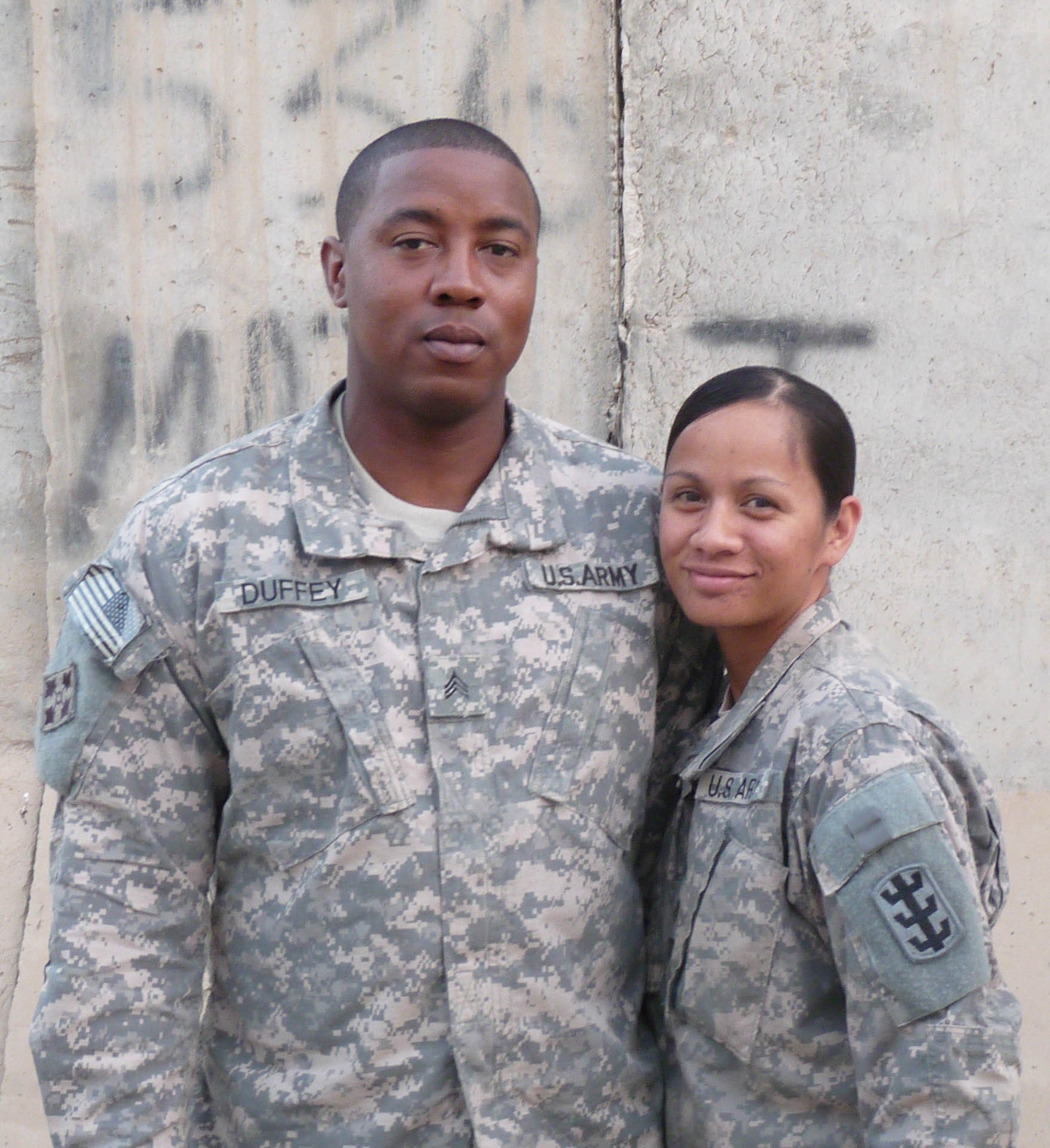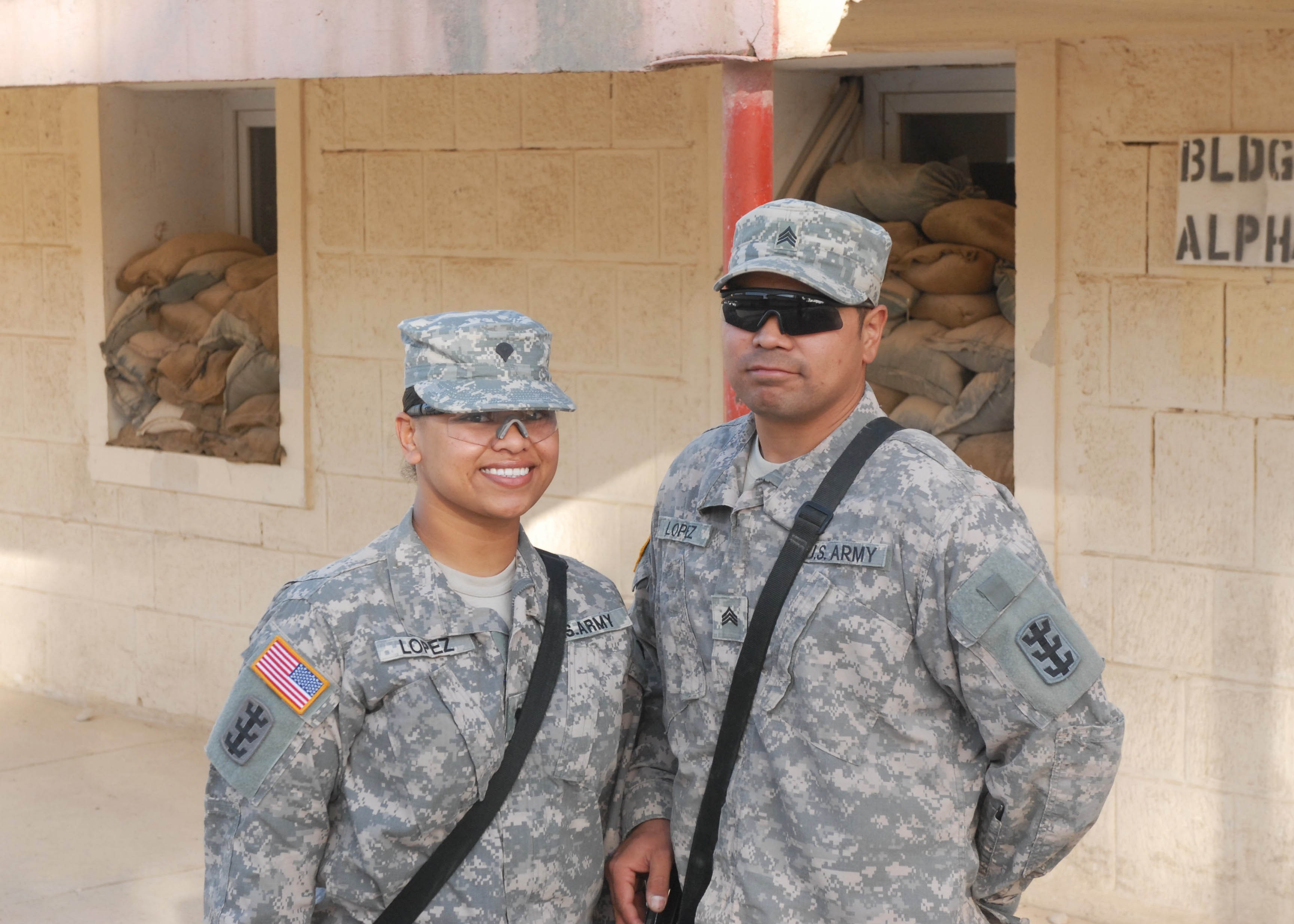MOSUL, Iraq - Most Soldiers agree that the hardest part of deployments is not the heat or long hours, but rather being away from home and separated from family and loved ones.
Dual military spouses (a husband and wife pair who are both serving in the military) sometimes face unique challenges when deployments come around, and some find it advantageous to be married and deployed together.
In the Forward Support Company (FSC), 84th Engineer Battalion, about 15 percent are dual military. While not all dual military spouses are able to be deployed at the same time, some couples do have the opportunity to serve together and even out of the same base.
Sgt. Kuuipo Duffey and her husband Sgt. Michael Duffey are both assigned to FSC. The two share a containerized housing unit (CHU) on Contingency Operating Station (COS) Diamondback and - while they have jobs that take them to different places during the day - they are able to spend most evenings and time off together.
Spc. Kristina Reese, the company supply representative, and her husband Spc. Cordell Reese, part of the 65th Engineer Battalion, are both deployed to Iraq, but stationed a few hundred miles apart. They are able to see each other, though only for about a day at a time, during visits that happen in conjunction with logistical convoys.
"We use webcam and chat online almost every day, but actually being able to spend a little time together is great," Spc. Reese said. They have been fortunate enough to spend about 10 days together since the beginning of the deployment.
A more typical example of a dual military situation is Chief Warrant Officer 3 Wayne Stewart, FSC\'s maintenance technician, and his wife, Sgt. 1st Class Bashira Stewart, who works back home at Tripler Army Medical Center. Stewart says that with the availability of real-time communicating services like instant messaging and webcam, he is able to talk to his wife and see his newborn daughter nearly every day.
Maintaining good communication with family helps keep strong ties and the stress of deployment manageable.
1st Sgt. Calvin Nance says that he can remember when phones were not available for Soldiers to call home.
"When I was deployed to Bosnia in 1996, I had to wait for three hours in sub zero temperatures to make a 10-minute phone call," he explained. "The Army has greatly improved since then; now I can talk to my family daily with little restriction on length of calls."
He and his wife, Master Sgt. Tamara Nance, were stationed in Hawaii for only a few months before they were separated by deployment.
Many Soldiers say the most difficult situation a dual military couple faces is when they have children and both parents deploy at the same time. Most often, dually-deployed parents choose to have close relatives take care of their children while they are away.
Sgt. Frank Lopez and Spc. Tofi Lopez's children are living in California with Sgt. Lopez's mother.
"The one good thing about it is that our children get to spend a lot of quality time with their grandmother in California, as opposed to only seeing her once or twice a year," Sgt. Lopez says. "My wife and I make sure to talk to them on the phone every other day, just to keep things as normal as possible throughout the deployment."
Being dual military and having one or both spouses deploy is a unique experience that may vary from one person to the next.
Many dual military spouses say a great part of serving simultaneously in the military is that it is easy to relate to each other because the work they do is similar. Even for the couples who are thousands of miles apart, it is often easier to communicate the complexities of the day to someone who is familiar with the lifestyle, strenuous expectations, and even Army acronyms.
Whether it is through instant messaging, webcam, phone calls or even good, old-fashioned snail mail, communication is a fundamental part of maintaining a strong and enduring military marriage.
2009 YEAR OF THE NCO
The Army has dedicated 2009 as the Year of the Noncommissioned Officer (NCO) in order to recognize the achievements of the NCO Corps.




Social Sharing